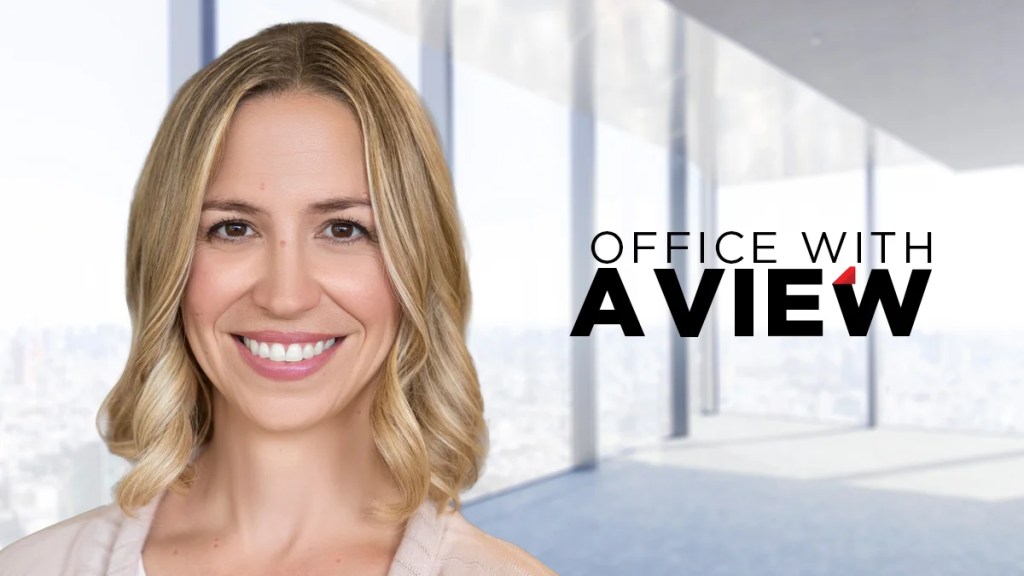When Lionsgate executive Jocelyn Sabo began thinking about how to bring the “John Wick” film franchise to TV through “The Continental,” she knew the show would have to balance keeping familiar elements while adding new dimensions to the universe to make the expansion a success.
“It’s a massive IP for us and we’re very lucky to have something like this in our library,” Sabo, the studio’s senior vice president for scripted television development, told TheWrap for this week’s Office With a View.
She continued, “When we first started talking about [‘The Continental’], the biggest question was how can we do this in a way that is going to maintain, while also growing, the franchise? How do we give fans what they might want and expect — especially when it comes to the action — but also bring new fans and also make our world feel really distinctive and really different?”
For “The Continental,” produced by Lionsgate TV and streaming on Peacock Sept. 22, Sabo and her team focused on expanding one hallmark of the franchise — assassin-filled hotels found across the films — through the youthful eyes of beloved character Winston Scott, who would later become one of Wick’s allies. Setting the show in the New York City of the 1970s, Sabo and her team found a clever way to expand the universe after the fourth “John Wick” movie leaves Wick’s fate ambiguous.
“We thought that would be a really interesting place to tell to tell [Winston’s] origin story, as well as his relationship with Charon,” Sabo continued. “Colin Woodell in ‘The Continental’ and Ayomide Adegun really took on those roles and feel like their own characters, [and] they’re beginning to shed light on who these men become down the road.”
Consistent communication, Sabo said, is crucial in working in development. For “The Continental,” that meant keeping Lionsgate’s motion picture group, domestic distributor Peacock and international distributor Amazon in the loop as the show approached its release.
“In development, we wear a lot of different hats, and we’re dealing with a lot of different people from all spectrums of the business,” Sabo said. “Especially as a studio exec, we’re often in the middle, and one of the best things to remember is that people want to be heard, and that they want to feel like you’ve heard them even when you can’t fully accommodate them.”
In situations when two parties aren’t aligned, Sabo explained that she tries to put herself in the other person’s shoes before doing her best to accommodate them.
Sabo spoke to TheWrap about how she successfully entered the entertainment industry and offered advice to young people looking to do the same.
This interview has been edited for length and clarity.
What is something you’ve learned from the industry that you would like to pass on?
When you’re trying to get into the industry, it’s really important to be open [and] be honest. Anyone who will sit with you, doesn’t matter if they’re quite in the right lane, be open to sitting with them. One big piece of information that was given to me that I like to pass on is that at the end of that meeting, ask them if there’s one more person that they will put you in touch with, not in an annoying way, but in a way that you can continue to develop your network.
Some of these meetings will lead to nothing. A lot of them at minimum lead to just more information, a better understanding of the industry as a whole and maybe a better understanding of what your interests are.
What advice do you have for young people entering the industry?
I think it’s also really important for anybody that’s young — and trying to find their path — to maintain a really hard work ethic, maintain their curiosity and their passion. Honestly, I feel like I’m still learning, and I have to remind myself sometimes about all of that.
The other thing that’s really important for somebody that’s young that’s coming in is to know what your point of view is and know the projects that excite you the most. And of course, that might shift. But it is easier for someone to help you if you can be really specific about where your passions are.
What have you seen as the key to success in your career?
Passion for what you’re doing and respecting others. I really believe that we all work together to achieve the amazing things that we put on screen and bring to others. Those [people] that are really good at collaborating and working together, those are the things that I value and that I think are the key to success.
The post Lionsgate TV Exec’s Advice for Building on IP: Give Fans What They Want But Make the World Distinct appeared first on TheWrap.




